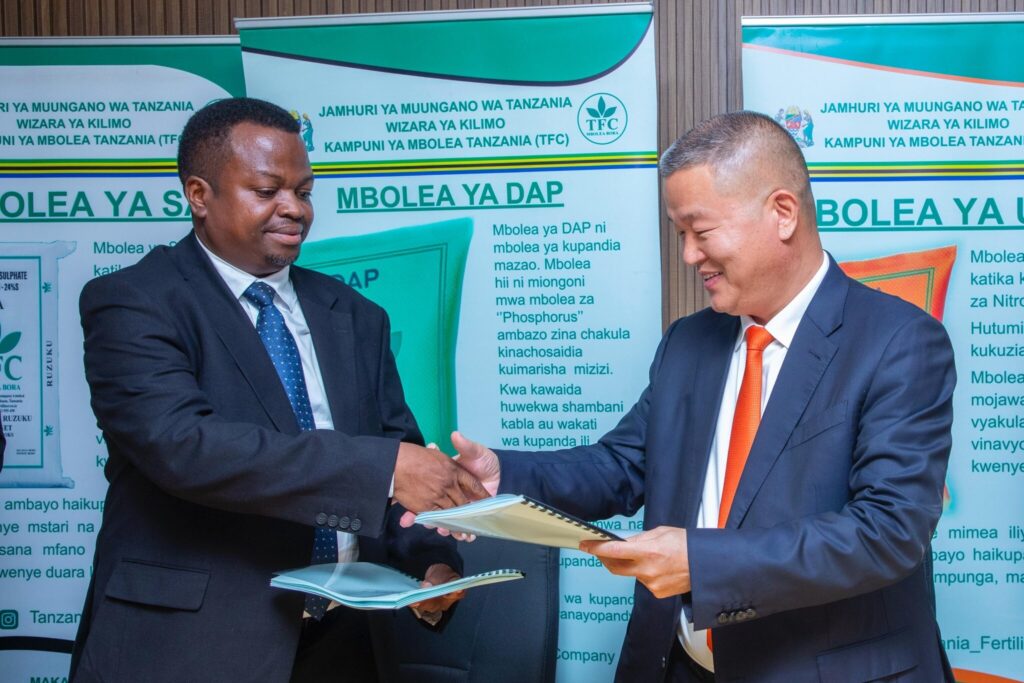Tanzania has established a significant partnership with Zambia to enhance its fertilizer supply chain, aiming to boost tobacco production and ensure long-term agricultural sustainability. The new agreement, formed between Zambia’s United Capital Fertilizer Limited (UCFL) and the Tanzania Fertilizer Company (TFC), focuses on the import, distribution, and eventual local production of NPK 10:18:24 fertilizer specifically formulated for tobacco cultivation.
A major highlight of the agreement is UCFL’s commitment to set up a specialized tobacco fertilizer manufacturing facility within Tanzania. This move is expected to not only reduce the country’s reliance on imported fertilizers but also position Tanzania as a key player in the regional fertilizer market. Initial groundwork for the plant has already commenced, signaling the beginning of a new chapter in agricultural development for the country.
As part of the strategy, the Tanzanian government has pledged to continue its fertilizer subsidy program to cushion local farmers while the domestic production ecosystem matures. The program will remain active until Tanzanian tobacco growers achieve full self-sufficiency and are able to compete effectively in the global market. The government’s continued support is viewed as a critical enabler for both smallholder and commercial farmers.
Tanzania is currently working towards a substantial increase in tobacco output. From a baseline of 120,000 metric tons recorded in 2024, the country aims to raise production to 160,000 metric tons in the upcoming season. Long-term targets are even more ambitious, with the goal set at 200,000 metric tons in the following years. This planned growth trajectory is backed by recent successes, such as Serengeti District’s production of over 2.2 million kilograms of tobacco, which serves as a strong indicator of the sector’s potential.
The partnership is also expected to strengthen agricultural infrastructure, particularly in terms of fertilizer logistics and storage. Agricultural cooperatives across Tanzania have been urged to prepare adequate storage facilities in anticipation of increased fertilizer imports. Proper storage will be essential to ensure the timely and efficient distribution of fertilizers during the planting season, thereby improving yields and minimizing losses.
Beyond tobacco, the implications of the partnership extend to broader agricultural development. By encouraging private sector investment and technological innovation in fertilizer production, Tanzania hopes to lay the groundwork for a more resilient and productive farming sector. The involvement of UCFL is especially promising, as the company brings expertise, investment capital, and experience from a regional perspective.
The government has also reaffirmed its commitment to maintaining a business-friendly environment to attract and retain agricultural investors. With policies aimed at encouraging both local and foreign participation in agricultural value chains, the fertilizer agreement is part of a larger agenda to transform Tanzania’s agriculture into a modern, competitive, and export-driven sector.
Overall, the fertilizer partnership between Tanzania and Zambia marks a significant step forward in regional cooperation, agricultural modernization, and economic empowerment for Tanzanian farmers. If successfully implemented, it could become a model for cross-border collaboration in agriculture, fostering growth and sustainability for years to come.

